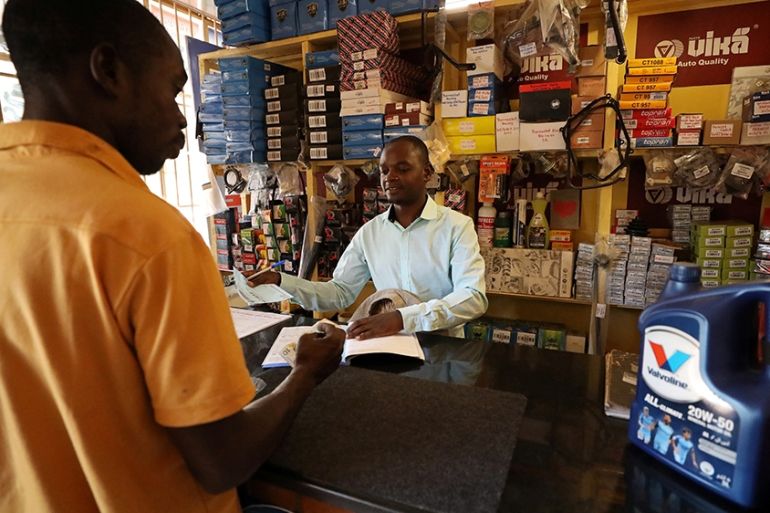African Union launches powerful new single trading market
Impacting more than 1 billion people, the new trade deal will spur economic growth and innovation on the continent.

Africa is taking a giant step towards harnessing its economic might now that 52 of the continent’s 55 countries have signed a free trade agreement that forms the Africa Continental Free Trade Area (AfCFTA).
“Africa has an opportunity to show real leadership on the world stage through strength in unity, as the rest of the world today is retreating from multilateralism and increases protectionism,” Landry Signe, the David M. Rubenstein Fellow in global economy and development with the Brookings Institution, told Al Jazeera.
Keep reading
list of 4 itemsWhy are nations racing to buy weapons?
Parallel economy: How Russia is defying the West’s boycott
US House approves aid package worth billions for Ukraine, Israel
The new continental trade agreement creates a single market for goods and services by removing existing trade barriers across Africa. This multinational market has a combined gross domestic product of $2m and a population of more than one billion people.
The rollout of AfCFTA is expected to boost Africa’s regional and international trade, according to the Brookings Institution, a nonprofit public policy organisation in Washington, DC.
Lifting trade barriers across Africa should “increase the value of intra-African trade by between 15 percent (or $50 billion) and 25 percent (or $70 billion),” by 2040, wrote Vera Songwe, executive secretary of the United Nations Economic Commission for Africa (UNECA) in a January 2019 essay.
Historically, it has been challenging for African countries to diversify export destinations.
But AfCFTA will make more Africa-produced goods available among member countries.
“It’s a clear signal that Africa wants to use trade to further grow and develop,” said Arancha González, executive director of the International Trade Centre (ITC).
Based in Geneva, Switzerland, the ITC works with the World Trade Organization on trade policy and research.